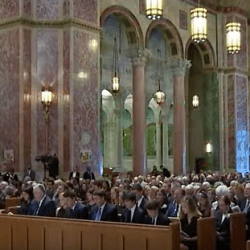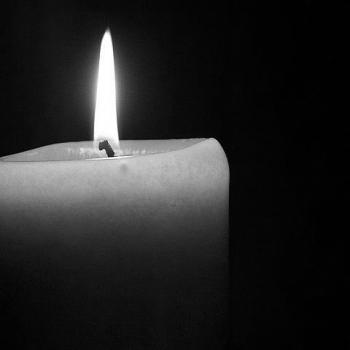Canon lawyer Ed Peters today follows up on his post from earlier this week and addresses a couple more questions, including one that a lot of people have raised:
What about every other use of the word ‘Catholic’ out there?
The question rests on a multitude of scenarios, of course, and I can’t address them all, but here are a few preliminary points.
1. Like her Founder, the Catholic Church has precious few “tools” with which to carry on her mission, but among those tools is her very name, Catholic. True, Catholics in every land and in every age have misused the name “Catholic”—not always with evil intentions, of course, yet often enough with bad (sometimes, very bad) consequences for the Church. But, notwithstanding the frequency of such misappropriations of her name, the Catholic Church has the right to take whatever steps she can to protect her name from being appropriated by those who think they have the authority to wrap themselves up in it.
2. The canon law regarding use of the word “Catholic” binds Catholics regardless of the degree of protection accorded, or not, the word “Catholic” under civil law. The alternative view effectively holds that the Church may enforce only those canons that the State lets her enforce. Perish that thought.
3. The canon law on use of the word “Catholic” and on certain types of public activities carried on by Catholics is considerably broader and more complex than any descriptions I have yet seen accorded it in the blogosphere. Folks who look up a canon or two and purport to explain their meaning risk doing a disservice to both the law and the community that law is meant to serve.
4. People are basically correct, I think, to note that ecclesiastical efforts to protect the word “Catholic” have been deficient over the last several decades. They areincorrect to hold that nothing (or practically nothing) was done to protect the word “Catholic” during those years, and I invite them to do some basic research to see for themselves. And they are certainly wrong to imply that the regrettable failures of the past to protect the name “Catholic” from misappropriation effectively bars Church leadership today from acting to protect that name (as if the solution to the ills of past disregard for law were—of all things—continued disregard for law!)
5. An archdiocese, like any governing/serving organization, has limited resources (financial, personnel, etc.) with which to respond to a virtually unlimited number of situations, opportunities, and problems. The priority accorded any specific matter is, therefore, always a function of the prominence of the issue (itself to be assessed in different ways), the clarity of the potential resolution(s), the present availability of resources to address the issue, and so on. Assuming that the AOD is acting within its authority—and it is—those who assert that it should deal with X, Y, and Z before saying anything about Voris/RCTV are entitled to their opinion, of course, but, in the end, they can only be saying that the AOD’s list of priorities is not identical to theirs.
I must repeat, this matter turns essentially on canon law, and will finally be decided not by webmasters or combox jockeys, but by ecclesiastical officials acting in accord with the substantive and procedural provisions of canon law, provisions to which all parties in this matter have rightful access.











